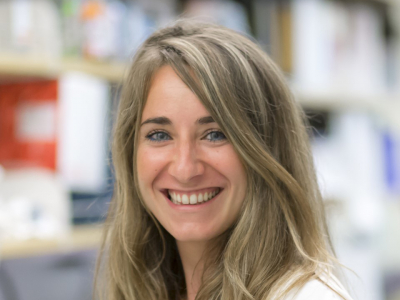
Aguilar Calvo Laboratory
Dr. Patricia Aguilar Calvo's laboratory focuses on the factors that modulate the interaction of misfolded proteins with glycoproteins and the impact in the pathogenesis of prion and Parkinson's diseases.
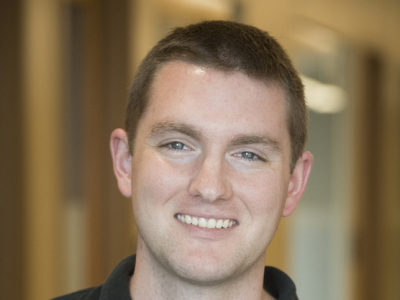
Arrant Laboratory
Dr. Andrew Arrant’s laboratory focuses on the cellular mechanisms underlying Alzheimer's disease and frontotemporal dementia.
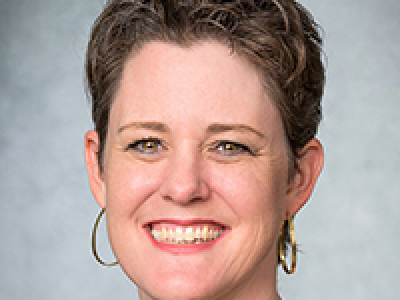
Cowell Laboratory
Dr. Rita Cowell's laboratory focuses on identifying the mechanisms underlying cell death in Parkinson's Disease, Frontotemporal Dementia, and Amyotrophic Lateral Sclerosis using mouse models of disease.

De Miranda Laboratory
Dr. Briana De Miranda's laboratory focuses on the role of environmental toxins in the pathogenesis of Parkinson disease.

Goldberg Laboratory
Dr. Matt Goldberg's laboratory focuses on identifying the mechanisms of neuronal degeneration in Parkinson's disease and investigating the roles of mitochondrial dysfunction, oxidative stress and genetic mutations in Parkin, DJ-1, PINK1, alpha-synuclein and LRRK2 that cause inherited forms of Parkinson’s disease

Gray Laboratory
Dr. Michelle Gray's laboratory focuses on Huntington’s disease, a rare and fatal genetic degenerative disorder. Her goal is to identify and understand mechanisms that contribute to Huntington’s disease pathology.

Harms Laboratory
Dr. Ashley Harms' laboratory focuses on the role of neuroinflammation in Parkinson disease and related disorders including multiple system atrophy.

Herskowitz Laboratory
Dr. Jeremy Herskowitz's laboratory focuses on Alzheimer's disease and the development of novel therapeutic strategies to delay or prevent disease onset.

King Laboratory
Dr. Peter King's laboratory focuses on mechanisms of growth factor mRNA stabilization in malignant gliomas and amyotrophic lateral sclerosis (ALS). Dr. King is also interested in molecular signatures of ALS in skeletal muscle. His long term goals are to identify potential therapeutic targets and to characterize biomarkers that may help in diagnosis and clinical monitoring.

Lazar Laboratory
Dr. Ronald Lazar's laboratory focuses on the cognitive effects of cerebrovascular disease, and the impact of systemic disease on neuroinflammation and cognition in aging.

Limdi Laboratory
Dr. Nita Limdi's laboratory focuses on elucidate genetic and environmental determinants of drug response, specifically those that are associated with toxicity and lack of efficacy. Her goal is to identify genetic and environmental predictors of anticoagulant and antiplatelet response and use this information to individualize therapy.
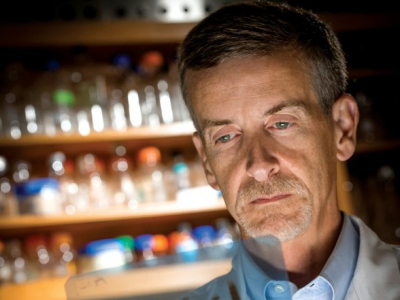
Nabors Laboratory
Dr. Burt Nabors' laboratory focuses on the role of post-transcriptional regulation of gene expression in primary brain cancers. The lab is focused on RNA binding proteins and their ability to regulate cell growth, proliferation, and invasion.
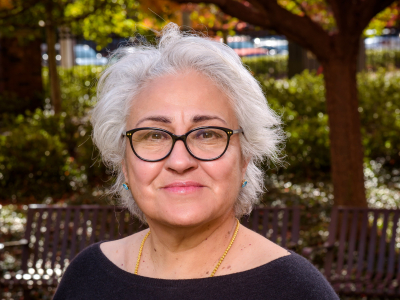
Payami Laboratory
Dr. Haydeh Payami's laboratory focuses on the prevention and treatment of Parkinson's disease and in particular the genes that interact with environmental risk factors. The goal is to predict who is at risk and what they should avoid and further personalize individual treatment for maximum benefit.

Roberson Laboratory
Dr. Erik Roberson’s laboratory focuses on age-related memory disorders and neurodegenerative disease, including Alzheimer's disease and frontotemporal dementia.
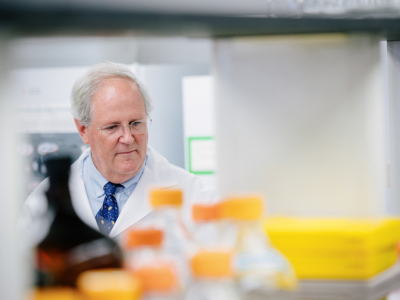
Standaert Laboratory
Dr. David Standaert's laboratory focuses on the pharmacology and neurochemistry of the basal ganglia and the mechanisms of Parkinson's disease and other conditions which produce abnormalities of movement.

Ubogu Laboratory
Dr. Eroboghene Ubogu's laboratory focuses on the molecular biology and physiology of the human blood-nerve barrier, as well as mechanisms of leukocyte trafficking into the peripheral nervous system in health and in immune-mediated disorders such as Guillain-Barre-syndrome, chronic inflammatory demyelinating polyradiculoneuropathy, vasculitic neuropathy and neuropathies associated with human immunodeficiency virus infection.

Volpicelli-Daley Laboratory
Dr. Laura Volpicelli-Daley's laboratory focuses on determining how α-synuclein pathology found in Parkinson's disease and Dementia with Lewy Bodies impacts membrane traffic in neurons, as well as how genes implicated in Parkinson's disease impact α-synuclein pathology.

Walker Laboratory
Dr. Harrison Walker's laboratory focuses on how deep brain stimulation works using a multimodal approach that integrates electroencephalography, electrocorticography, single unit recordings, neuroimaging, and behavioral assessment in patients with movement disorders. Our goal is to obtain new knowledge about the therapeutic mechanism of DBS and to apply these findings to guide technological innovation, both for established indications and for emerging indications in neurology and psychiatry.
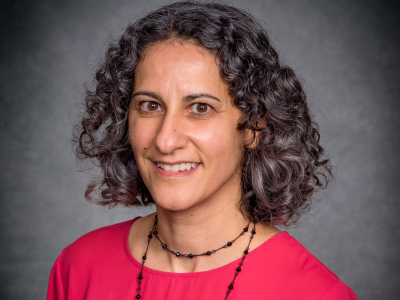
Yacoubian Laboratory
Dr. Talene Yacoubian's laboratory focuses on understanding the pathophysiology of Parkinson’s disease with the long-term goal of developing neuroprotective therapies.